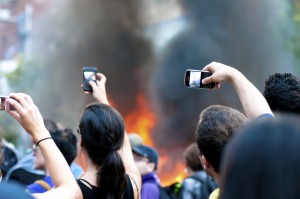Virtual worlds could be used to develop new staff training techniques, as a recent study revealed that skills used in role-playing games spill over to real-life employment
SPENDING your free-time playing online games can positively impact your leadership skills and learning behaviours at work, according to researchers at Newcastle University Business School and the University of Crete.
Massively multiplayer online role-playing games (MMORPGs) – like World of Warcraft, Lineage II, and The Lord of the Rings Online – involve thousands of players from all over the world, and have been the centre of a study looking at the impact these virtual spaces can have on an employee’s behaviour at work.
The one month study – carried out by Dr Despoina Xanthopoulou, from the University of Crete and Dr Savvas Papagiannidis, from Newcastle University Business School, of a sample of employees who were also gamers, revealed that playing MMORPGs can have beneficial effects on real-life work through the transmission of virtually practiced leadership skills and active learning behaviours (learning by doing), according to the research published in the journal, Technological Forecasting and Social Change.
In the achievement-orientated world of MMORPGs, many of the combat-related activities needed to gain points, solve quests or enhance the social capital of an avatar1, hold similarities to common work tasks. From collaboration to meeting targets, team work to resolve complex missions, strategic planning, allocating resources, to recruiting new players to form groups, there is a clear link between the skills needed to enjoy a good game performance, and the real corporate world.
For this reason, the players who have had to manifest good leadership skills and gaming behaviours to succeed in MMORPGs, were more likely to see these characteristics spill over from games to their real work-life. This spill over effect was particularly evident when combined with high performance standards in the game.
The researchers – using self-perception theory – argue that when players see their avatars acting in a certain way, it is highly probable that they will change their behaviour in the real world to be consistent with their online self.
The study revealed that it could be viable for organisations to develop staff training methods within specially designed metaverses2 to help employees harness leadership skills, active learning behaviours and professional development.
Dr Despoina Xanthopoulou stated: “Despite the fact that the literature on the negative (addictive) effects of games is quite rich, research on the potential positive effects of gaming is scarce.
“This is one of the first studies that investigates how online games can be beneficial for our real-life employment. One of the unique features of this study is in the finding that in-game leadership skills and learning behaviours spill over to work, particularly when combined with high performance in the game. When certain leadership skills and learning behaviours are combined with feelings of competence and success, these are highly valued, and that is when people tend to mimic them outside the game environment.”
Newcastle University Business School’s head of innovation and enterprise and senior lecturer, Dr Savvas Papagiannidis, said: “As a ‘gamer’ myself, I have always had an interest in how gaming behaviour can transcend the borders of the gaming environment. The results from our research support the connection between in-game transformational leadership, and active learning, spilling over into work.
“As the working world demands international collaboration across continents within online environments like emails, webinars and e-conferences, we are more virtual than ever before. Through this increase in interactive business activity via the evolving information systems available, and our research findings, I believe that MMORPGs could be a viable training method used by corporations to aid staff development, and hone good leadership skills.”


